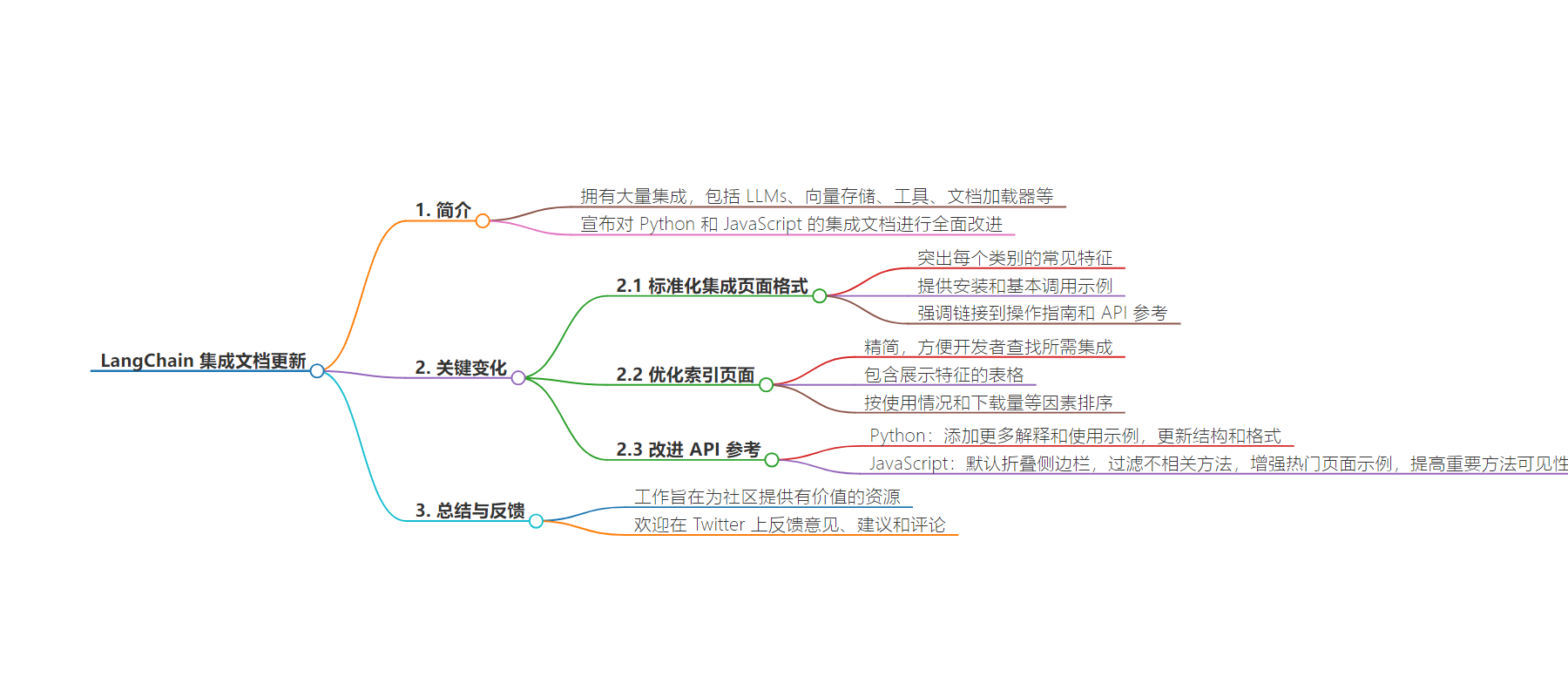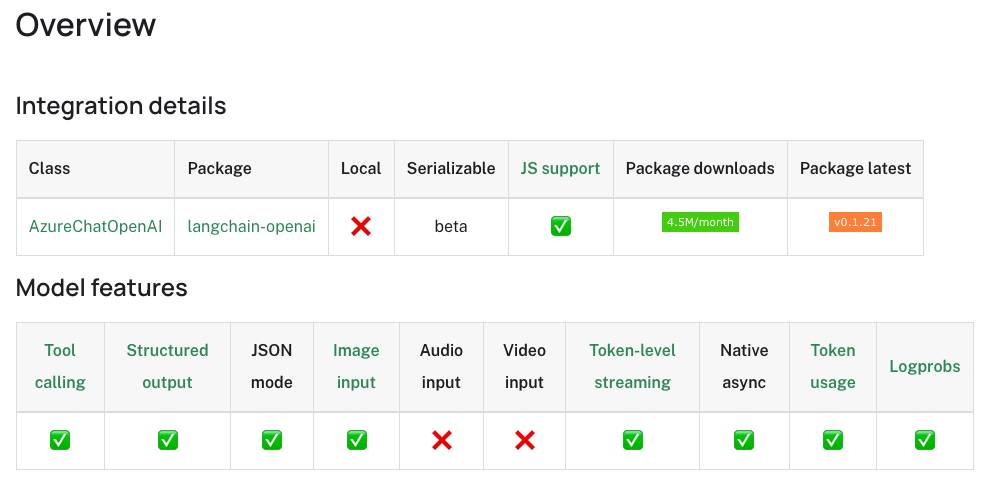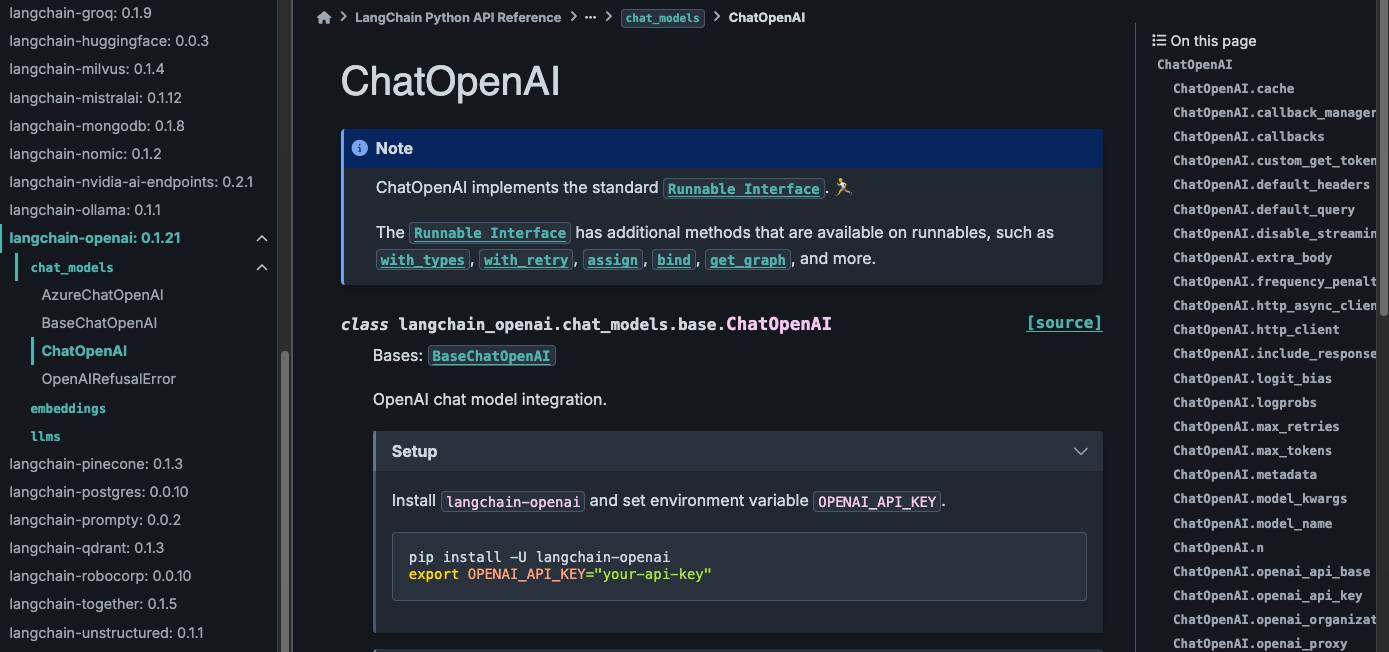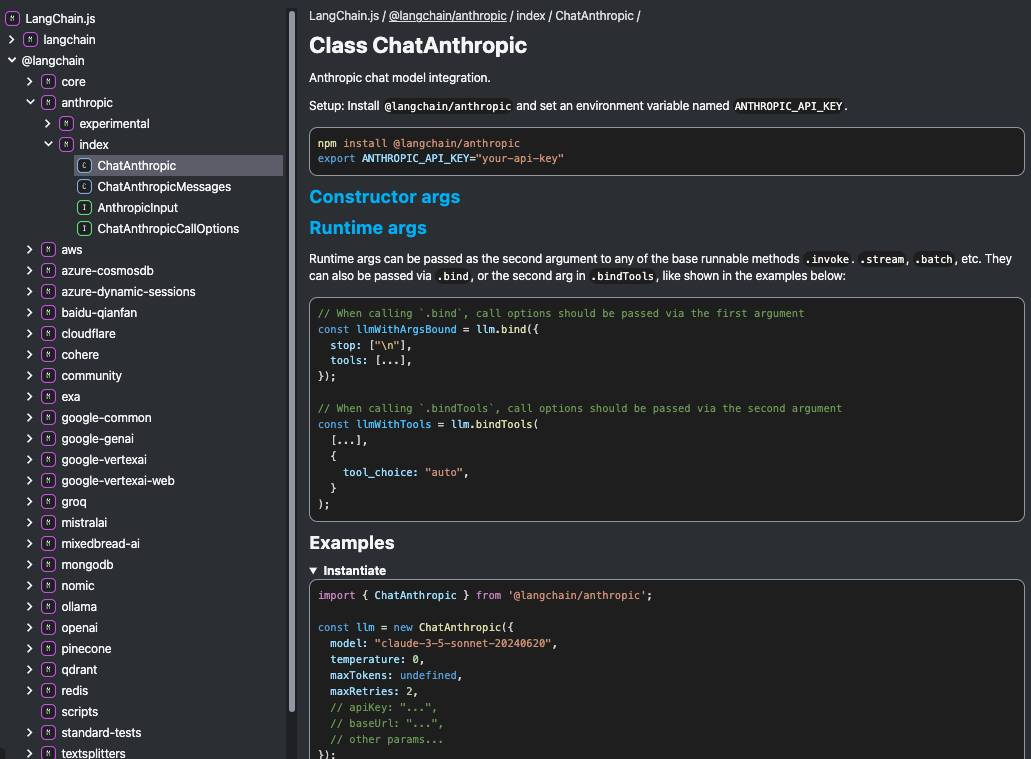包阅导读总结
1.
关键词:LangChain、Integration、Documentation、API References、Community
2.
总结:LangChain 对其集成文档进行了全面革新,包括 Python 和 JavaScript 版本,涵盖标准化格式、新索引页、改进的 API 参考等,以方便社区更有效地获取信息。
3.
– 集成数量众多
– LangChain 拥有超过 1000 个集成,包括 LLMs、向量存储、工具等。
– 文档更新内容
– 所有集成页面采用标准化格式。
– 各组件索引页清理优化,含“Features”表突出支持的特定功能。
– 改进 API 参考,提供更多示例和相关信息。
– 标准化模板目标
– 帮助开发者快速了解集成的功能及使用方法。
– 新索引页作用
– 便于开发者找到所需集成,“Features”表按多种因素排序。
– 改进的 API 参考
– Python:添加更多解释和示例,更新结构和格式。
– JavaScript:默认折叠侧边栏,增强流行页面的示例。
– 反馈与交流
– 期待社区反馈以继续完善文档。
思维导图:
文章地址:https://blog.langchain.dev/langchain-integration-docs-revamped/
文章来源:blog.langchain.dev
作者:LangChain
发布时间:2024/8/14 15:37
语言:英文
总字数:536字
预计阅读时间:3分钟
评分:91分
标签:LangChain,文档,API 参考,Python,JavaScript
以下为原文内容
本内容来源于用户推荐转载,旨在分享知识与观点,如有侵权请联系删除 联系邮箱 media@ilingban.com
A large part of the LangChain ecosystem is its extensive collection of integrations. LangChain offers over 1,000 integrations for LLMs, vector stores, tools, document loaders, and more.
Today, we’re announcing an overhaul of our integration documentation in both Python and JavaScript to make it more useful and accessible for the community. The key changes include:
- A standardized format for all integration pages.
- A cleaned-up index page for each component, which includes a “Features” table highlighting which integrations support specific features.
- Improved API references that better surface examples and relevant information.
Let’s dive in!
Standardized content for all integration pages
Over the last year and a half, the LangChain community has contributed over 1,000 open-source integrations, including chat models, vector stores, tools, and retrievers. As the sheer quantity of integrations has grown and best practices have changed over time, many pages have become outdated.
Key integrations now follow a standardized template that highlights common features for each category (e.g. models, vector stores, retrievers). For example, for chat models, each page begins with a table showing whether an integration supports features like tool calling and multimodal input, followed by installation and basic invocation examples.
Our goal with these revamped integration pages is to help developers quickly identify what an integration can do and how to use it.

While some advanced, integration-specific examples remain on these pages, we’ve placed more emphasis on linking to how-to guides and API references to keep the content evergreen and avoid repetition.
New index pages for streamlined search
To help developers find the integrations they want, we’ve also streamlined the index pages for each type of integration. Combined with the smaller sidebar, these index pages now include tables similar to those on individual integration pages, which lets you quickly identify an integration with the features you need.

These “Features” tables are currently sorted by a combination of factors including usage in LangSmith traces and package downloads (where relevant). We’ll be looking into more ways to highlight and feature up-and-coming integrations in the future.
Improved API references
Our new pages prominently feature our improved API references for Python and JavaScript.
For Python, we’ve added more explanations and usage examples into the docstrings. We’ve also updated the structure and formatting to be more modern and user-friendly, including a navigable sidebar of methods and attributes for all classes.

For JavaScript, we’ve gone in a similar direction. To make the API References pages less intimidating, we’ve collapsed the sidebar by default, filtering out less relevant methods and other build artifacts.
We’ve also enhanced popular chat model and vector store pages with various usage examples, and have generally improved the visibility of useful runtime and constructor definitions and important methods on these pages.

This ongoing work aims to make our API references stand on their own as valuable resources to the LangChain community.
Check out our latest integration docs for Python and for JavaScript. Your feedback is invaluable as we continue to refine and improve our documentation. Feel free to drop us a line on Twitter with any questions, suggestions, or comments.
Updates from the LangChain team and community
